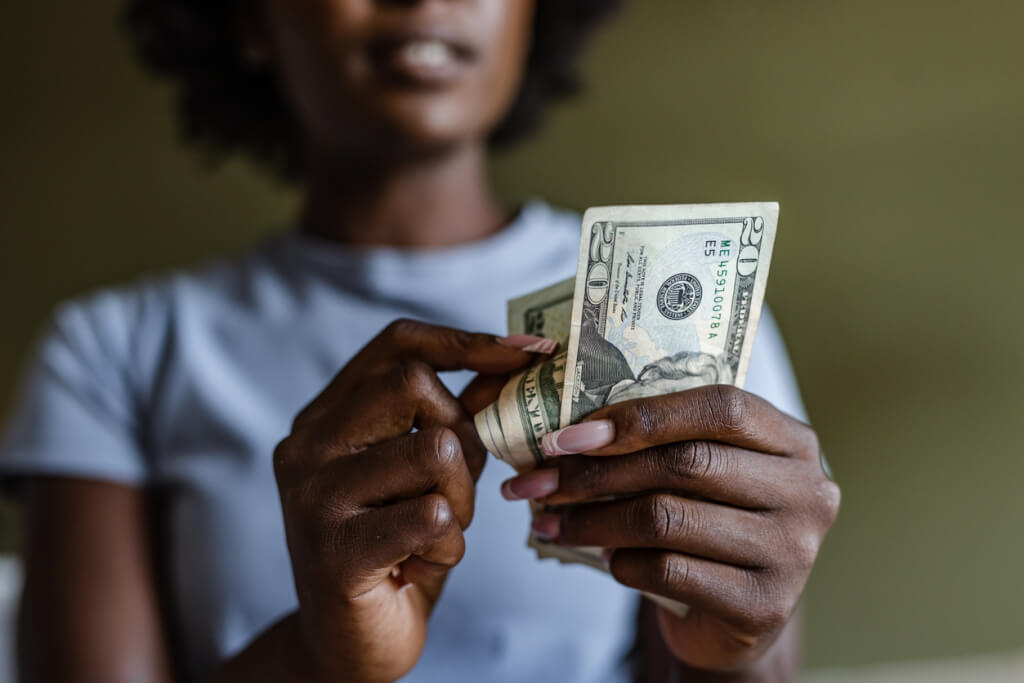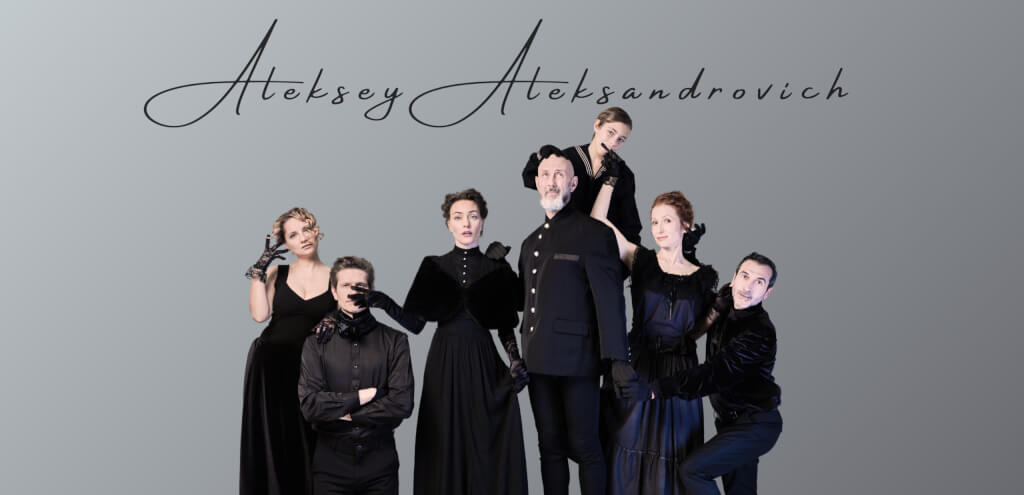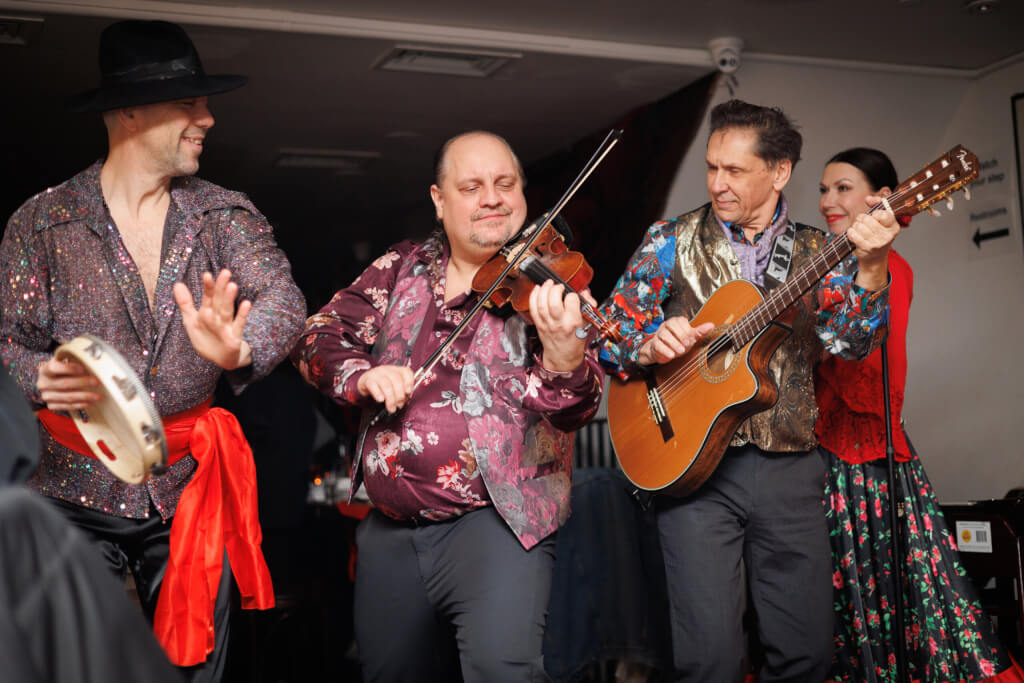What Russian oligarchs and their families own in New York
'28.02.2022'
Nurgul Sultanova-Chetin
U.S. politicians, including some senators such as Republican Roger Wicker of Mississippi, are calling for a full list of Vladimir Putin's Navalny 35 associates to be formally sanctioned in the U.S. New York Post.
This is a list of top individual alleged “key aides to Putin’s kleptocracy” compiled by Russian opposition leader Alexei Navalny. He survived near-fatal nerve agent poisoning by Putin's goons after exposing the dictator's extent of corruption and money laundering, including the construction of a billion-dollar presidential palace. Navalny still speaks out even from prison during the massacre under the guise of a court session.
After Russia's invasion of Ukraine, the US imposed sanctions on Putin and some of his henchmen - but not all. As well as the UK, Canada and more than 15 other countries have already agreed to ban Russian private jets from flying over "democratic skies". However, many prominent oligarchs have not been touched and still enjoy their private jets and megayachts, although this may change.
Sanctions hit not only the wallets of the oligarchs. Travel bans are also hurting their global standing.
On the subject: Many popular skyscrapers in New York were built with the money of Kazakh politicians: what is known about them
“The oligarchs are deeply concerned about the travel bans because they undermine their reputation and the philanthropy they use to bolster their public image,” said Louise Shelley, director of the Center for Terrorism, Transnational Crime and Corruption at George Mason University.
First on the list - Roman Abramovich
At the top of Navalny's list is Roman Abramovich, the billionaire oligarch and owner of a British football club known as "Putin's banker."
Abramovich, who is worth over $13,8 billion, recently received Portuguese citizenship. In late 2017, Abramovich handed over $92 million worth of New York real estate to his ex-wife, Dasha Zhukova, just before sanctions were announced in 2018. These sanctions punished people close to Putin and were meant to "counter and deter Russia's malign actions" that are hurting democracy around the world.
The ability of oligarchs to transfer wealth to others is another loophole that cannot be ignored, Shelley said. “This ability of politically exposed people to transfer property to friends and relatives is a way to circumvent the law, and we need a law to solve this problem,” she said.
On Friday, February 25, members of the British Parliament named Abramovich as one of the "key assistants" to the Putin regime - something Abramovich has denied in the past. He was also effectively banned from entering the UK, where he owns apart worth $170 million near Kensington Palace, as well as the Chelsea Football Club. (He handed over “the management and care—or direct management—of the club to a group of trustees on Saturday.)
He also owns the $600 million megayacht Solaris, which boasts its own missile detection system. His other megayacht, Eclipse, was spotted off the tiny island of St. Maarten earlier this week, sources tell The Post. Meanwhile, British Prime Minister Boris Johnson erroneously said last week that Abramovich was already on the British sanctions list. British Foreign Secretary Liz Truss reportedly said at the time that the country did not rule out adding it in the future.
Paul Massaro, U.S. Congressional Anti-Corruption and Foreign Policy Adviser, claims that Abramovich and others close to Putin are in the Russian dictator's wallet, "acting on behalf of the Russian state to infiltrate Western society and advance Putin's agenda" .
"Kremligarchs"
“They are part of the Russian state apparatus, and we don’t even see it, but they get inside to undermine democracy,” he argues. “They are his weapons abroad – and they are in our system. We have come to rely on them for raw materials and also as the people who run Russian state-owned companies or companies under their influence. But they are appendages of the Russian state.”
One Russian political activist, Ilya Zaslavsky, calls them "Kremlin" because "the oligarchs assume some independence, but they don't have it."
Many of these so-called oligarchs own real estate in New York. But it's hard to link them to their assets because they've managed to hide their identities behind several layers of anonymous shell companies and trusts thanks to the fact that the real estate industry has been able to achieve "temporary exemptions" - for two decades. — from US anti-money laundering laws since the US Anti-Terrorism Act of 2002.
“People sanctioned this week — eight years after the first sanctions so far — have no traceable property in their name in the United States, making arrest difficult,” said Tom Firestone, partner at Stroock & Stroock & Levin. Tom specializes in transnational investigations and is co-chairman of the Internal Investigations and White Collar Bureau.
Global Witness, a non-profit organization investigating the secret offshore world, says there are at least $12 trillion hidden in offshore accounts. This includes trillions of dollars allegedly stolen from the people of Russia and used in part to strengthen Putin's autocracy at home while destabilizing and even invading democracies abroad.
Here are the oligarchs of New York:
Roman Abramovich
Estimated cost: $13,8 billion.
Currently not on the US sanctions list. Owns two yachts and the Chelsea Football Club in the UK. Known as Putin's banker. Shortly before an earlier round of sanctions in 2018, Abramovich gave $92,3 million worth of real estate to his ex-wife Dasha Zhukova. She is on the Board of Directors of the Metropolitan Museum of Art.
Zhukova, who is now married to Stavros Niarchos, is also a New York real estate developer. She is currently building Ray Harlem, a 21-story, 222-unit new building that will also house the National Black Theatre, at 2033 Fifth Avenue 125th Street. In addition, she is the founder of the Garage Museum of Modern Art in Moscow, the Garage magazine and the Artsy digital platform.
Zhukova condemned the Russian invasion of Ukraine on their museum's Instagram page, stating that they "decided to stop working on all exhibitions until the human and political tragedy that is unfolding in Ukraine ceases. We cannot maintain the illusion of normality when such events occur.” However, Zhukova declined to comment on her ex-husband's status and whether she agrees with politicians who want family members of sanctioned oligarchs to also be stripped of their illicit wealth and his possessions - property, yachts, art, aircraft and jewelry received and kept. through direct connections to dirty deals and dictators.
In a statement, she told The Post: “Russia’s brutal and horrific invasion of Ukraine is disgraceful. As someone born in Russia, I unreservedly condemn these hostilities and stand in solidarity with the Ukrainian people, as well as with the millions of Russians who feel the same way.”
Properties associated with it:
- *9, 11, 13 East 75th St. ($74 million)
- *15 East 75th St. ($16.5 million)
- *215 E. 73rd St., fourth floor ($900)
- * The ownership of three apartments passed to Zhukova.
Oleg Deripaska
Estimated cost: $4,1 billion
On US sanctions list: Banned from entering the US. Started as a metal broker trading in aluminum. US officials say Deripaska is close to Putin and the Russian mafia and is wanted for murder, money laundering, bribery and racketeering.
The US froze his assets but allowed his business partner's ex-wife, Dasha Zhukova, to live in his East 64th Street mansion for a time. Now she no longer lives there. His companies were removed from the sanctions list when he reduced his ownership (but supposedly not control) to less than 50%. Among his partners are Abramovich and Len Blavatnik.
In 2000, Deripaska founded Rusal, a partnership between Siberian Aluminum and Abramovich's Millhouse Capital. By 2007, Rusal had merged with SUAL Group, owned by sanctioned oligarch Viktor Vekselberg and his partner and friend, Ukrainian-American and British citizen Len Blavatnik. Deripaska's ex-wife Polina Yumasheva is the daughter of the right hand of the late Boris Yeltsin, Valentin Yumashev.
Properties associated with it:
- * 11 E. 64th Street (purchased for $42,5 million in 2008) Former home of Alec Wildenstein and Jocelyn Wildenstein.
- *12 Gay St $4.5 million, FBI raided there in October 2021.
- * The ownership of the two above-mentioned objects passed to Deripaska's relatives.
Len Blavatnik
Estimated value: $34,2 billion
Currently not on the US sanctions list. His yacht is named after his birthplace, Odessa. One of the richest people in the world - he is said to be the richest in the UK, where he also holds citizenship and a knighthood from the Queen. Blavatnik is a steel and energy magnate who also owns Warner Music. He has made controversial donations to the Council on Foreign Relations, the Hudson Institute, Harvard, Yale and Oxford, which now houses the Blavatnik School of Government, to name but a few.
When he most recently handed over $12 million to CFR, 56 senior members, including Russian grandmaster Garry Kasparov, wrote an explosive letter to group head Richard Haas urging him to return the money. According to a September 2019 letter obtained by The Post, he "acquired his original fortune through highly questionable deals in tandem with the regimes of [ex-Kazakhstan president] Nursultan Nazarbayev and Vladimir Putin" through strategic alliances with security personnel and practices that undoubtedly , would be considered criminal in any democracy."
Blavatnik declined to comment at the time, Haas did not respond to the allegations against Blavatnik. Instead, he touted other Blavatnik donations to Harvard, Yale and Oxford: "We are proud to be in such an outstanding company," he said.
Earlier, a spokesman for Blavatnik told The Post that Blavatnik had not spoken to Putin since 2000 and "plays no role in Russian politics."
Blavatnik made his first fortune by buying up former Soviet state-owned natural resources and companies after the collapse of the Soviet empire. His empire now extends into the real estate, film, music, biotech and hotel industries around the world. In 2013, the Russian government paid Blavatnik $7,5 billion for his stake in TNK-BP, a Russian oil company. His partners were the sub-sanctioned oligarchs Viktor Vekselberg and the founders of the sub-sanctioned Alfa Bank of the EU and the USA: Mikhail Fridman, German Khan and Alexei Kuzmichev.
Properties associated with it:
- 2 E. 63rd St., 23 meter wide townhouse, former New York Academy of Sciences, purchased in 2005, $31,25 million 2007 and administered by the New York Academy of Sciences.
- 15 E. 64th St., $51, purchased in 2007. The seller was Edgar Bronfman. After buying Bronfman's townhouse, Blavatnik bought his Warner Music company for $3,3 billion.
- 834 Fifth Avenue Co-op, $80 million in 2014 - Blavatnik overpaid $5 million.
- 19 E. 64th St Blavatnik paid a then-record $90 million in 2018 - the former art gallery of the Wildenstein family.
- 998 Fifth Avenue, #4W, co-op, across from the Metropolitan, $27,5 million purchase in 2007.
- He also owns a sprawling beachfront mega-mansion on Dune Road in Sagaponack, in the Hamptons.
Alexey Kuzmichev
Estimated cost: $5,8 billion
Currently not on the US sanctions list. Kuzmichev is a co-founder of Alfa-Bank, Russia's largest private bank and the country's fourth largest. Alpha is on US and EU sanctions lists. Together with sanctioned oligarchs Mikhail Fridman and German Khan, he controls Alfa Group and LetterOne, which has interests in banking telecommunications and natural resources. All three have been partners since 1989. They were part of the TNK-BP oil consortium with Blavatnik and Vekselberg.
Properties associated with it:
- 33 E. 74th St: In 2016, he paid $42 million for the first four floors of the 7-story mansion. And also $15,5 million for a three-bedroom apartment in another building; he planned to combine them.
Evgeny Shvidler
Estimated net worth: $1,7 billion
Currently not on the US sanctions list. Oil tycoon, childhood friend and partner of Roman Abramovich; Shvidler is Chairman of the Board of Abramovich's Millhouse and Highland Gold Mining.
Properties associated with it:
- 785 Fifth Avenue, Apt 17AB: In May 2018, Shvidler bought a duplex from David Geffenaz for $24,5 million.
Dmitry Rybolovlev
Estimated net worth: $6,7 billion
Currently not on the US sanctions list. Rybolovlev is a fertilizer oligarch and president of the Monaco football club. He made his fortune thanks to his connections with Putin, said Ilya Zaslavsky, a Russian political activist who has written extensively on the oligarchs.
In 2008, Rybolovlev paid $95 million for real estate in Donald's Palm Beach. Trump. mansion at 515 N. Country Road — $13 million more than the most expensive home sale in Palm Beach at the time. In 2004, Trump paid only $41 million for the house.
Ryboloyev also owned a battery plant in North Carolina: he changed his name from Alevo to Innolit after selling assets and reforming after bankruptcy — but Alevo's leadership and ties to Russia remained in place. The plant is helping to power the U.S. electricity grid, and policy experts are reported to say its Russian ties pose a national security risk.
Properties associated with it:
- 15 Central Park West: Rybolovlev paid $88 million to buy the penthouse of Citigroup CEO Sanford Weil. His representative said he bought it for his daughter in trust.







